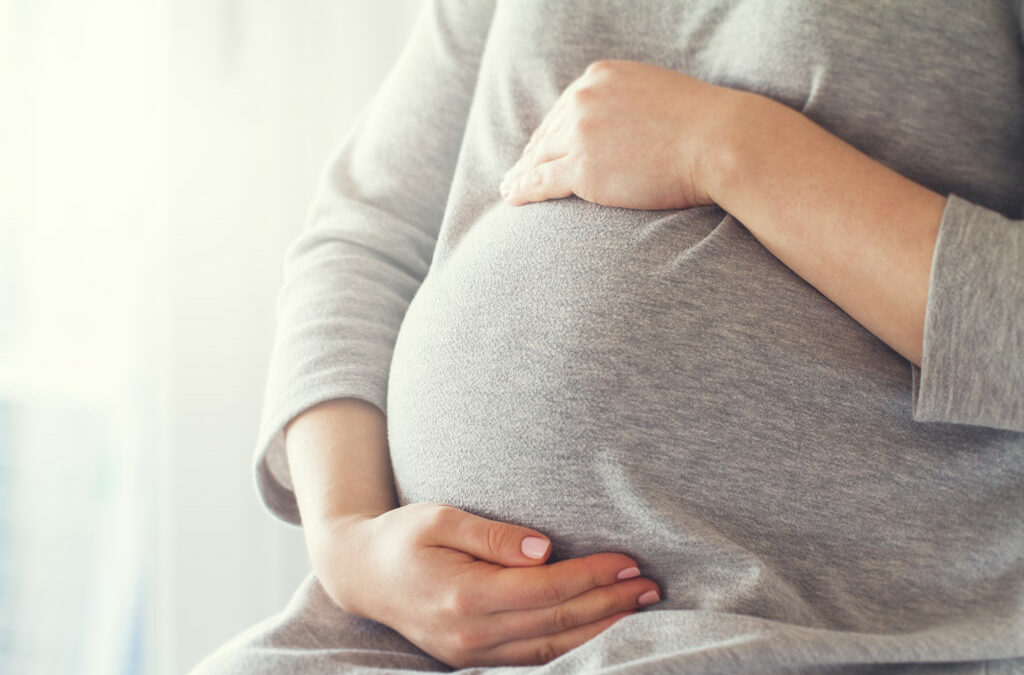Medically, early intrauterine pregnancy is having a gestational sac implanted in your womb that is too small to see the baby yet or listen to its heartbeat. In simpler words, it’s the very early stage of pregnancy at which a mother may or may not have thought of herself to be.
Having a nurse or a doctor, breaking it to you that you have an early intrauterine pregnancy may mean either of the two things:
- Your pregnancy is progressing normally, and you are actually at a very early stage in pregnancy. This can be thought of when the lady is not sure about her dates, has been having irregular periods for a while, and has recently stopped taking the contraceptive pill.
- Your pregnancy is not progressing normally, and the gestational sac, with the embryo, is smaller than it expectedly should have been at this particular time in pregnancy. This is only possible when the woman is sure about her dates if she has vaginal bleeding or her progesterone levels are low.
Both situations can only be confirmed upon having a transvaginal scan which is also how one spots an intrauterine pregnancy after getting a positive on the pregnancy test.
How To Spot An Early Intrauterine Pregnancy?
Early confirmation of intrauterine pregnancy can help manage it and pave the way for further steps in maternal care. This is only possible with a transvaginal scan. Once the pregnancy dip test comes positive, the doctor recommends a transvaginal scan, which confirms the presence of a gestational sac in the womb.
Vaginal bleeding and spotting after getting a positive pregnancy test are the most common key signs of early intrauterine pregnancy. A doctor must be sought out immediately if any of these mentioned symptoms are observed.
Progression Of An Early Intrauterine Pregnancy
After spotting an early intrauterine pregnancy, you must ensure that you are taking the right steps to advance your pregnancy.
If your estimated conception date and the size of the gestational sac on the scan doesn’t quite add up, the doctor would recommend a follow-up transvaginal scan to be done after two weeks of the initial one. This eliminates the chances of pregnancy being in its early stage as the follow-up time difference would give additional time for the sac to develop and grow.
In addition, the second scan can confirm the conception date and help determine if the pregnancy is proceeding at the proper rate. Once the scans clarify your stage of pregnancy, discuss the next possible steps to proceed with precautions.
What Causes Failure Of Early Intrauterine Pregnancy?
The primary reason behind the failure of an early intrauterine pregnancy boils down to our genes and chromosomes.
Abnormal Genes Or Chromosomal Mutation
The leading cause of failure of early intrauterine pregnancy or miscarriage is often some deadly chromosomal mutation such as an additional or missing chromosome. There are several consequences to abnormal genes, such as the early demise of the foetus, the embryo never beginning to form, molar pregnancy, incomplete foetal development, etc.
Lower Your Chances Of Having An Early Intrauterine Pregnancy
One of the best ways to not fall victim to this problem is to take care of the mother’s health.
Several pre-existing maternal conditions may lead to a miscarriage, obesity, and diabetes topping the list. Uncontrolled and untreated diabetes risks pregnancy and is a major threat to the foetus’s life. Other hormonal issues may lead to improper uterine lining development on thyroid deficiencies that ultimately prove life-threatening for the foetus.
The mother’s age directly relates to the chance of miscarriage as the older the age number, the higher the chances of miscarriage. Moreover, mothers who have suffered from miscarriage earlier are at a greater risk of undergoing one again, so they should be taking extra care.
Preventive Measures To Ensure A Healthy Pregnancy
A healthy pregnancy leading to the delivery of a healthy baby is every mother’s dream. There are some lifestyle modifications that an expecting mother should make to ensure a healthy pregnancy overall.
While fostering an embryo in your womb, it’s better to take any precautionary measures to ensure the simultaneous safety of both; the foetus and the mother. Avoid doing any drugs, consuming alcohol, and smoking. These factors weaken the immunity system and are a must to avoid.
Moreover, eating healthy and exercising regularly is the key to having a safe and healthy pregnancy. Setup and follow a daily light exercise routine. If you are a working woman, ensure that your workplace doesn’t have any hazardous fumes in the air, and the place is clear of any harmful radiations.
More steps to ensure an overall healthy pregnancy are:
- Avoid smoking, consuming alcohol, or doing any drugs. A robust immune system is what lays the foundation for a healthy mother and a healthy baby. You wouldn’t want to intoxicate your immune system with these things, especially during pregnancy.
- Eating a healthy, well-balanced diet does make all the difference. Make sure your diet is laden with fruits and vegetables. It’s always better to eat fruit than juice as that takes away the fibre essential for regular bowel movements.
- Exercise regularly and maintain an average healthy weight when looking forward to conception. Overweight pregnancy is often likely to have complications.
- If you have any comorbidities, ensure to treat them beforehand, such as antiphospholipid syndrome, weakened cervix etc.
- Ensure to have regular checkups to steer clear of any maternal vaginal infections that may occur due to myriads of reasons. Such bacterial infections may result in severe complications, and the best way to avoid them is by maintaining proper hygiene and having regular health checkups.
Conclusion
Early intrauterine pregnancy may be due to a lot of reasons. Maintaining a healthy lifestyle by exercising regularly, eating a balanced diet, and avoiding smoking, alcohol, and drugs ensure a healthy pregnancy. Early detection upon ultrasound and following a few health steps can manage early intrauterine pregnancy quite well.



Recent Comments